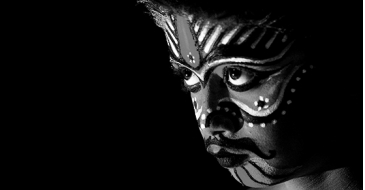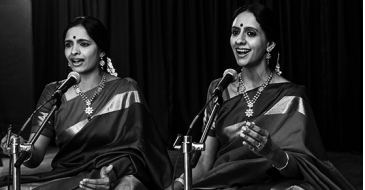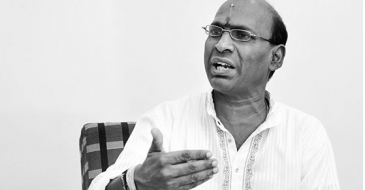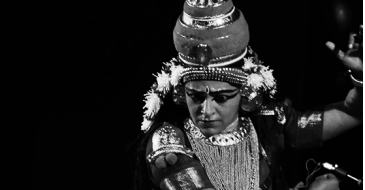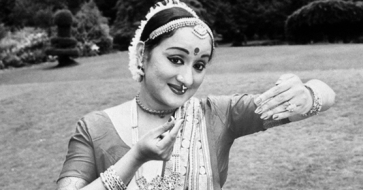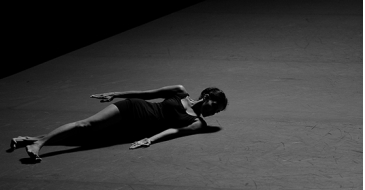How has dance influenced your relationship with yourself?
Dance has brought into my life an extreme awareness of the body. You are constantly in conversation with the body. It’s a language that I am able to speak in.
What is your idea of love?
I have no rules about love. Love is an experience; you can’t have a rule book around love. I’m excited by the idea of love and my latest production, Queen Size, has a lot to do with that. How does love get expressed? Where does love reside in the body? How is it located in the space between two bodies? As a choreographer, I am drawn to the idea of love.
So, is Queen Size a fearless attempt to demonstrate themes of intimacy and sexuality? Did you have any apprehensions about this work?
There were many. I had apprehensions about what I was making... I begin to question if I was making porn. If not, what was I making? I was also apprehensive about making my own sexuality public. I was concerned if my parents were going to be okay with watching it, or with the fact that I made the piece... I also felt wary about performing this piece in our current socio-political environment. But the fear was exactly why I had to do it.
You said that Queen Size was an attempt to make your own sexuality public. What were the consequences of that attempt?
Well, I have been out since the age of 19, but there’s always this thing that you haven’t declared it in any way. With Queen Size, it was important for me to make a point about the fact that this is queer work by a queer artist. Asserting one’s identity has become extremely important at a time like this.
What is reverence? What is deference? What is it that inspires people to bow down to a higher power? You take away power from yourself and pass it on to an institution. I have difficulty with a blind notion of deference. It takes away agency from an individual. It gives you solidity, but at what cost?
Considering Queen Size is a response to Article 377, what was the kind of censorship you had to face?
I faced no censorship.
Does that make you happy?
It does make me happy, as we want to build an extensive tour circuit for the work by linking up with friends and friends of friends and others interested in showcasing our work. This extended tour circuit has given us a palpable sense of this growing community of artistes, activists, programmers, spaces and audiences in the country. We’ve taken Queen Size to 18 cities in the country, and will do 10 more in the next couple of months.
Given that you want to take your work to universities across the country, do you think academic institutions in India have created forums where open and candid conversations on sexuality are acceptable?
We have visited about six institutions already. It is exciting that they have invited this work. Across the country, I feel that now there is a growing need for academic institutions to have a queer voice. Institutions for higher education these days have either gender committees or a queer collective. We have had conversations with students in ways where they can respond to the performance by asking questions around gender and sexuality and building a constructive discussion around the role of the performance in activism. That’s been exciting.
There were also moments where students were coming out with their sexuality at the end of these conversations. That's been a moving experience. So much so, it had me wishing we had these opportunities when we were studying. I spent my college life feeling like there was no community to reach out to. It is fulfilling to see the shift.
From your own experience in taking the arts across the globe, did you feel you had to tweak Queen Size for the London audience?
I felt a self-imposed pressure to re-contextualise the work. I was concerned whether references to sex in underwear would be just too outdated in a place like London. I was happy that Queen Size was warmly received, that people were moved by it. I realised that conversations around sexuality, intimacy and privacy have not been had enough, even in a place like London.
Do you network with queer voices abroad?
There are many forms of activism, many ways to lobby for equal sexual rights. The arts are a very strong mode of activism. I am not just interested in activism through pride marches. There are other forms of activism too - through art, performance, and through the work that you do. These are very different modes of activism but they do come together in the end to build a collective voice for change. We are all connected with each other, in that way..
So now, post Queen Size, you see yourself as both – a queer activist and a choreographer?
I think it’s time that we all have to stand up and declare ourselves to be queer activists, and feminists, and environmentalists and animal rights activists. It’s not the job of a few to do stand up for these rights.
My rule book is dynamic; it shifts with time
Have you ever participated in a queer parade? Can you recall any memorable instances?
I have been participating in queer parades for years. I remember a sense of euphoria during the 2009 march, after the Delhi High Court decriminalised homosexuality. I remember there being a sense of arriving at a place where you felt you were being heard for the first time. I have a distinct memory of that euphoric moment.
Movies like Fire and Dostana have addressed the theme of alternative sexuality. How do you feel about how cinema has looked at this topic?
I’d say I have a mixed relationship with the portrayal of the LGBT community through cinema. There are films in the mainstream, like Dostana, that attempt to make homosexuality visible. I find the representation of queer identities in these films to be highly problematic. At best, these films only consolidate stereotypes by portraying caricatures of queer people. But I have also been excited by a few films. Like this film that released last year – Aligarh - I thought it was a sensitively made film. My Brother Nikhil was also a lovely film. A documentary film made in 1999 by Nishit Saran, Summer In My Veins, focussed on the potency of private lives when brought out into the public space. Mainstream cinema is extremely powerful. I think it is important that we critically think about what identities we represent and how we represent them and continue to challenge stereotypes that mainstream cinema continually harvests.

Have you watched other queer performances? Can you recount one that has had an impact on you?
I haven’t watched too many in India. I have seen a work by DV8 (a London-based dance company) called To Be Straight With You, that stayed with me. Devised from interviews conducted with several people, this is a work about about tolerance/intolerance, culture, religion and homo/sexuality. Very very powerful and highly political. It is embedded in my imagination now.
Do you believe in God?
Not exactly... My relationship with the divine is highly unformed. I haven’t thought about it enough. Maybe it will get formed in time.
What is your idea of religion?
This is something I am beginning to think about... What is reverence? What is deference? What is it that inspires people to bow down to a higher power? You take away power from yourself and pass it on to an institution. I have difficulty with a blind notion of deference. It takes away agency from an individual. It gives you solidity, but at what cost?
You are also dealing with rule books – rule books that were written hundreds of years ago. But in the past hundred years, things have shifted. Our collective belief system around gender, sexuality, race, caste, class has shifted more radically in the last century than any other time. Or so I would like to believe. So I am interested in how religion evolves to keep pace with our evolving lives.

Across the country, I feel that now there is a growing need for academic institutions to have a queer voice. Institutions for higher education these days have either gender committees or a queer collective. We have had conversations with students in ways where they can respond to the performance by asking questions around gender and sexuality and building a constructive discussion around the role of the performance in activism
What is your rule book like?
My rule book is dynamic; it shifts with time. It is also up for negotiation; it is not written in stone. If everything in our lives can be seen as an invention, it liberates you from putting anything down in stone. Belief systems must evolve. And so must the language we speak. Is it possible for our rule books to be nothing else but a set of ever-evolving questions?
What is your biggest hope for the LGBT community?
You mean apart from equal rights? I can’t think beyond that for now!
Where do you derive your sense of community from?
I derive my sense of community from the people around me - from the queer community, from the artistes’ community. Through the Not In My Name campaign, I am interested in how we can expand the larger community that wants to stand up and protect the secular fabric of our country. Can we as a society stand up for everyone’s welfare? I do believe that we are not home till everyone’s home.
Interviewed by Anjana Raghu Ram
0 comments Comments
SIGN UP TO RECEIVE OUR WEEKLY NEWSLETTER IN YOUR INBOX





